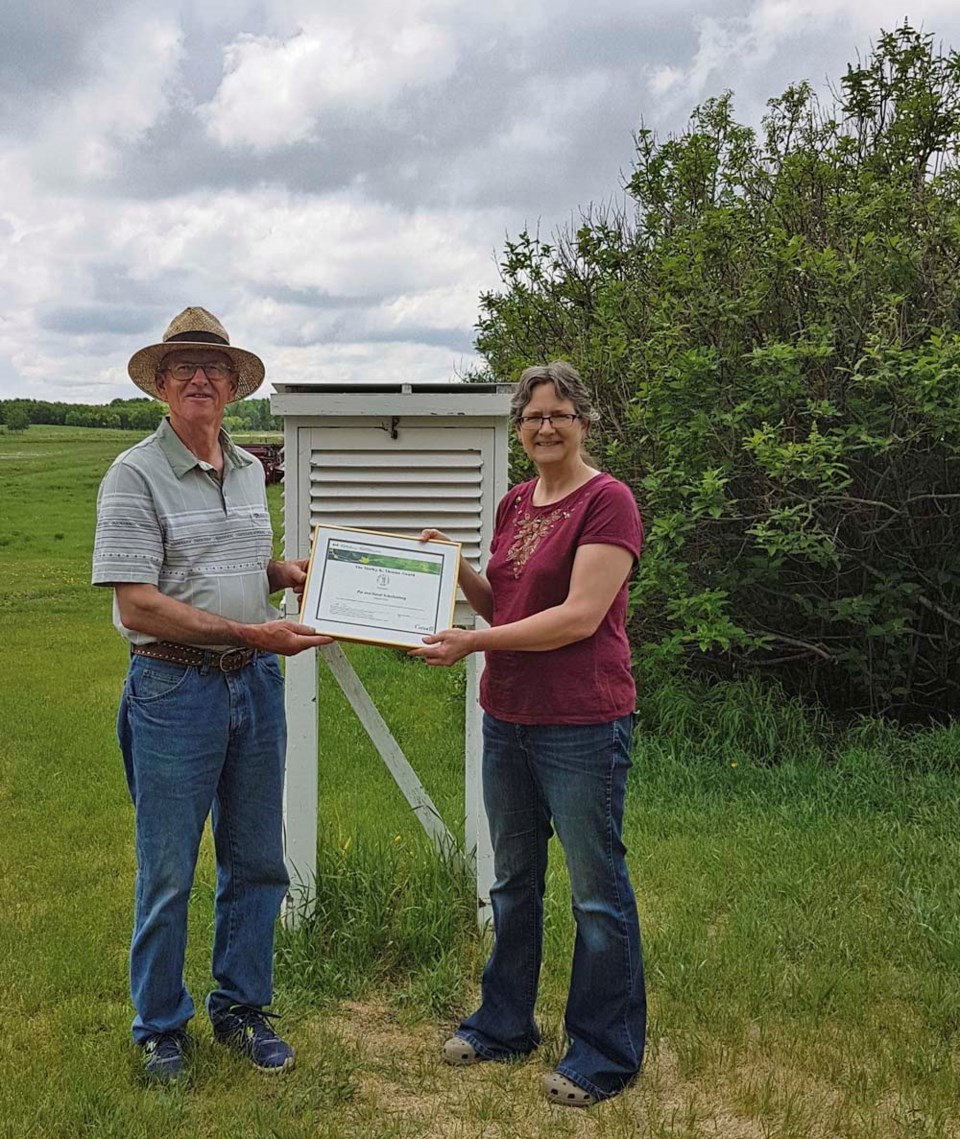Pat and David Schellenberg, farmers in the Elkhorn have been recognized for 30 years as Volunteer Climate Observers with Environment and Climate Change Canada. They received a framed certificate and a letter of congratulations as well as a gift as a token of appreciation.
“It was kind of a surprise,” said Pat Schellenberg of the award. “We don’t really expect anything.”
They were first recruited by a notice put up in the post office by Environment Canada. David Schellenberg said, “Growing up on the farm it’s a natural thing to do.”
During their early morning weather observance David noticed an unusual sight, one normally seen in the evening.
“Last summer I was up before 6:00 a.m. and I saw the most beautiful rainbow in the west.” This was due to early morning shower in partly cloudy skies.
ECCC maintains a Volunteer Climate Network that utilizes the donated time and service of people across Canada who are interested in helping provide climate information that cannot be collected by more formal manned and automated weather observing systems.
Al Martin of Environment Canada said, “Thirty years is significant time frame as it is a benchmark to establish climate “normals” for a location.” That is when climatologists start to get a proper understanding of the climate in a particular area.
Weather history
Approximately 1200 observers across Canada faithfully record twice daily, 365 days a year. The data is passed on to ECCC on a monthly basis and some daily by use of a computer network.
Quality assurance checks are made with a mixture of automated and manual checks. Some data is provided to the World Meteorological Organization for climate studies.
The data contained in the Environment Canada National Climate Archive represent over 160 years of continuous monitoring of the climate of Canada.
Important decision-making
Information derived from data analysis provides Canadians with the basis for decisions affecting standard of living and well-being.
Climate has a significant influence on daily agriculture, the type of crops and decisions regarding livestock.
Extreme rainfall statistics are required for the design of city sewers and culverts, and snowfall predicts snow loads, flooding and moisture availability.
Climate data are used to size-up heating and cooling needs in businesses and residences; to help energy companies plan for the capacity needed to meet public demands; and to plan major construction of roads, airports, homes and industrial projects.
Storm chasers
Most volunteers are severe weather spotters and help inform the forecasters of significant weather in an area, as far as damaging winds, thunderstorms, hail and even tornadoes.
“Environment Canada, on occasion when there’s a severe storm, will phone us for help (information) on the ground,” says David Schellenberg.
“A lot of Canada’s weather observers first volunteered their time and commitment in the 1960s when Canada’s Centennial was celebrated,” says Martin. “Now, in a fast-paced world, it is difficult to find young volunteers with the spirit, interest, and the stability and commitment in their lives to make these observations.”
The Schellenberg’s data is recorded under Elkhorn 2E. Historical information can be found at http://climate.weather.gc.ca/historical.




